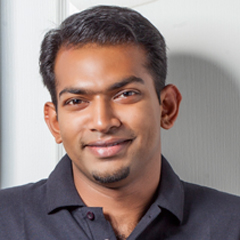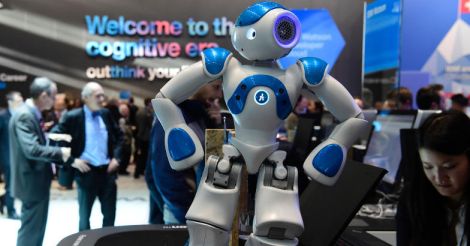Startups, undoubtedly, are the backbone of change in the economy as well as the common environment. Google and WhatsApp are two good examples of startups that have grown dramatically since their humble beginnings.
To gauge the future of startups and emerging breakthroughs, we need to focus on the indigenous innovations on the technology horizon rather than looking at developments that dominate the mainstream.
Silicon Valley in California, which is the world’s greatest and most talked about example, is a hub of visionaries with ground-breaking ideas that could conquer the world. Self-driving cars and lorries being test-driven on the roads of Silicon Valley is a common sight nowadays. There is no doubt that these vehicles will hit the roads in Kerala within 10 years’ time.
The advent of technology has enabled us to share photos and videos online. But within a few years, our virtual life will be more social than the real one, thanks to the rapid development in computer technology.
The future of virtual reality will turn our lives upside down. By enabling a sense of presence, we will be moved from a web of information to an Internet of experiences. The fine line between the real and virtual world will become thinner.
A situation will arise, wherein at least 90 percent of the world’s total population will be living without doing activities that involve ‘heavy work’. Robots will take over most jobs within a couple of decades. They will even design and assemble new robots, creating their own clones.
The world of artificial intelligence (AI) will be more diverse than the earth where we live on now.
Moreover, we will enter the age of the computer chip brain implant, which could be the pinnacle of human evolution.
Interestingly, it will radicalize our academic system as well as learning habits. One will be able to ‘download’ all details of a subject of choice to the chip implanted in his/her brain.
By 2017, the world will witness a quantum leap in AI research. Machines and computers will possess a varied set of skills and they will be smarter and intelligent than human beings. There are people who fear robots will take over the world in the near future. But a section of scientists sees it as a potential solution to many challenges we face in today’s world.
We will have to wait and see what the results is.
Amidst all this pessimism and optimism, people like Elon Musk, co-founder of PayPal and Tesla Motors and owner of SpaceX, are busy devising an ambitious plan for establishing a colony of one million humans on Mars! Musk’s idea is to make a self-sustaining alternative arrangement in the red planet, making humanity’s extinction unlikely even if something goes terribly awry here on Earth.
In short, our focus should be on training the youngsters to adapt to the changing nature of the world. The youth in Kerala should also prepare themselves to rise to the occasion and meet these challenges of the future.
(The author is the chairman of the Kochi Startup Village)

























 A small interactive robot from IBM's Watson AI department. File/AFP
A small interactive robot from IBM's Watson AI department. File/AFP